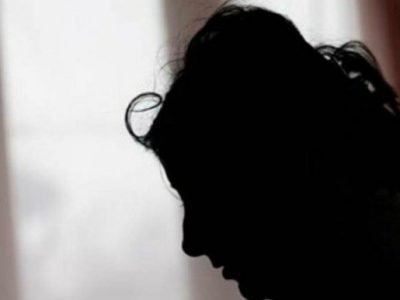
Author: Pratistha Dahiya, 3rd year student at Symbiosis Law School.
Introduction
A doctor’s responsibility is to cure his or her patient and help them recuperate in the most comfortable way possible while under their supervision, but what happens when the patient’s agony is caused by The doctor themselves? When a medical or health care practitioner deviates from his or her standard of care and causes suffering or harm to a patient, this is referred to as medical malpractice. Not only that, but according to the Health Ministry of India, some medical practises are unlawful to conduct, and when these medical professionals do such medical operations, they are also breaking the law.
The distinction between Medical Malpractice and Negligence is subtle but significant. Medical malpractice is a violation of duty by a medical professional or medical institution; medical negligence, on the other hand, is not intentional. When a medical professional makes an “error” in treating a patient, the patient suffers damage as a result of the mistake.[1] A doctor’s oath states that practising medicine is a privilege that comes with a lot of responsibility and a pledge not to misuse one’s authority and position, but the sad reality is that individuals do abuse it for money all the time.
What involves Medical Malpractice?
A hospital, physician, or other caregivers such as nurses and ward boys are expected to meet a specific level of care. The practitioner is not responsible for all the suffering that a patient suffers. They are, nevertheless, legally liable if the patient suffers harm or injury as a result of the health provider’s deviation from the standard of care in comparable instances.
Health care providers must follow specific guidelines or risk being accused of carelessness, according to the law. There can be no claim if a patient believes the practitioner was negligent but no harm or injury happens. The patient must show that carelessness caused the damage or harm and that it would not have occurred if it had not been for the negligence. The patient must prove that the injury or damage caused by medical malpractice resulted in significant financial loss. Suffering, lasting difficulty, persistent agony, incapacity, and other forms of significant harm might be incurred.[2]
The BMJ reported research in 2013 suggesting that misdiagnosed or delayed diagnosis was the leading cause of malpractice.[3]
Medical Negligence
Doctors and hospitals are required to give medical care with all of the expertise and knowledge at their disposal, and to do nothing to damage the patient in any way, either by neglect, incompetence, or risky behaviour on the part of their personnel. Medical negligence happens if a doctor or other medical practitioner fails to follow the established medical standard of service when performing their duties. if a doctor offers medication that falls short of established medical standards in the conditions, that doctor has failed to execute his or her job.
A physician’s and a hospital’s failure to fulfil this responsibility is ultimately a tortious liability. A tort is a civil wrong, a right in rem as opposed to a contractual duty, or a violation that requires judicial intervention in the form of monetary damages.[4]
Prevention By Law and Immunity
Even the most recognised specialist might make a mistake when it comes to identifying or diagnosing the real nature of an illness. The Court of India has ruled that an allegation of professional negligence against a doctor is treated differently from a charge of negligence against another person. Under the Indian Penal Code, these sections are that are usually refreded in cases like such:[5]
- IPC Sec 52: (Good faith).
- IPC Sec 80: (Accident in doing a lawful act)
- IPC Sec 88: (Act not intended to cause death, done by consent in good faith for person’s benefit).
- IPC Sec 92: (Act done in good faith for benefit of a person without consent)
- IPC Sec 93: (Communication made in good faith)
The National Commission, in its decision and order, determined that those who seek medical care in government hospitals are not “consumers,” and that the service provided in government hospitals cannot be considered “decided to employ” for “compensation.” The general public contributing taxes directly or indirectly is not considered “compensation” for the services given at public hospitals, according to the court. It has also been decided that a state employee’s payment to the Central Government Health Program or another comparable scheme does not qualify him as a “consumer” under the statute.[6]
In tort, especially for medical negligence, under the CONSUMER PROTECTION ACT 1986, one can claim for breach of duty and duty of care, which can be easily established in a court of law with the aid of medical specialists and the patient’s medical records. Under Article 21 of India’s constitution, which guarantees the right to health and medical care, the patient can also go to court.[7]
There are also alternate mechanisms for patient protection, such as the National and State Human Rights Commissions (NHRC) (SHRC). Because SRHC is bestowed with civil court powers, it can order the state to pay compensation to the patient’s family or even provide urgent remedy if the patient’s right has been violated.[8]
Case Studies
In Poonam Verma vs. Ashwin Patel and Ors, The Supreme Court declared that a person who has not specialised in a specific field of medicine and is yet practise is a charlatan. When a person is found to be negligent in the first place, no more evidence is required.[9]
Kunal Saha (Dr.) vs Dr. Sukumar Mukherjee and others, is a high-profile case that has resulted in the largest sum of compensation ever awarded. Anuradha Saha is another name for this instance. This was a straightforward instance of medical malpractice on the part of a doctor toward his patient.The patient had a medication allergy, which was misdiagnosed by Dr. Sukumar Mukherjee, Dr. Baidyanath Halder, and Dr. Balram Prasad due to their negligence in administering medicine, resulting in the patient’s condition deteriorating and eventually leading to death. The supreme court of India handed down the ultimate decision, finding all of the physicians responsible for the patient’s death and awarding Rs 6.08 crore in damages.[10]
V Krishan Rao Vs Nikhil Super Speciality Hospital, Kishan Rao, a malaria department official, has filed a lawsuit against the hospital for failing to treat his wife properly. So, the findings are that his wife was misdiagnosed with typhoid fever when she actually had malaria, and the hospital gave her the wrong medicine.In this decision, the court found the hospital responsible for medical malpractice and awarded Rao Rs 2 lakhs in damages. The principle of res ipsa loquitur was invoked in this case.[11]
Conclusion
Without the opinion of an expert, negligence or malpractice cannot be established. According to the Supreme Court of India, medical negligence or malpractice would not be considered if the doctor(s) had to conduct an emergency surgery and obtained consent from the family or guardian of the family. The state should also take efforts to enhance medical professional ethics, since if a doctor can neglect a patient or prescribe unnecessary therapy for financial gain, not only legally but is morally wrong as well, Many advocates and survivors of medical malpractice have claimed to be seeking reparation for doctors’ and physicians’ wrongdoings, and therefore, doctors like such are unfit to practise medicine. Physicians who have previously broken their oaths in order to make more money and ignore their patients must no longer be called doctors.
The law should apply to all professionals operating in many fields that need a certain level of expertise and fiduciary duty, not only those in medicine. People in our nation are already prey to numerous diseases and are suffering as a result of them; let us work to decrease these fatalities and improve the field so that individuals do not perish in the places wherein they seek treatment.
References
[1] Difference between Malpractice and Negligence, The Pickett Law Firm, http://wdpickett-law.com/faqs/what-is-the-difference-between-medical-malpractice-medical-negligence/.
[2] What is medical malpractice?, Medical News Today, https://www.medicalnewstoday.com/articles/248175#what_is_medical_malpractice.
[3] Dr. Emma Wallace, The epidemiology of malpractice claims in primary care: a systematic review, US National Library of Medical Science (Jun.18, 2013), https://www.ncbi.nlm.nih.gov/pmc/articles/PMC3693415/.
[4] Shobha and M.S. Pandit, Medical negligence: Coverage of the profession, duties, ethics, case law, and enlightened defense – A legal perspective,US National Library of Medical Science (Sep. 2009), https://www.ncbi.nlm.nih.gov/pmc/articles/PMC2779963/.
[5] Indian Penal Code, Legislative.gov.in, https://legislative.gov.in/sites/default/files/A1860-45.pdf.
[6] National Commission Judgment and Order Dated December 15, 1989 in First Appeal No. 2 of 1989.
[7] Priya Adlaka and Nitin Nagpal, India: Medical Negligence India, Modaq (Apr. 29, 2021), https://www.mondaq.com/india/dodd-frank-consumer-protection-act/1062944/medical-negligence-india.
[8] Manish Modak, MEDICAL NEGLIGENCE AND REMEDIES TO THE PATIENTS, Astrea Legal, https://astrealegal.com/medical-negligence-and-remedies-to-the-patients/.
[9] Poonam Verma vs. Ashwin Patel and Ors. (1996) 4 SCC 322
[10] Kunal Saha (Dr.) vs Dr. Sukumar Mukherjee and others (2009) 9 SCC 221
[11] V Krishan Rao Vs Nikhil Super Speciality Hospital (2010) 5 SCC 513








You go girl !